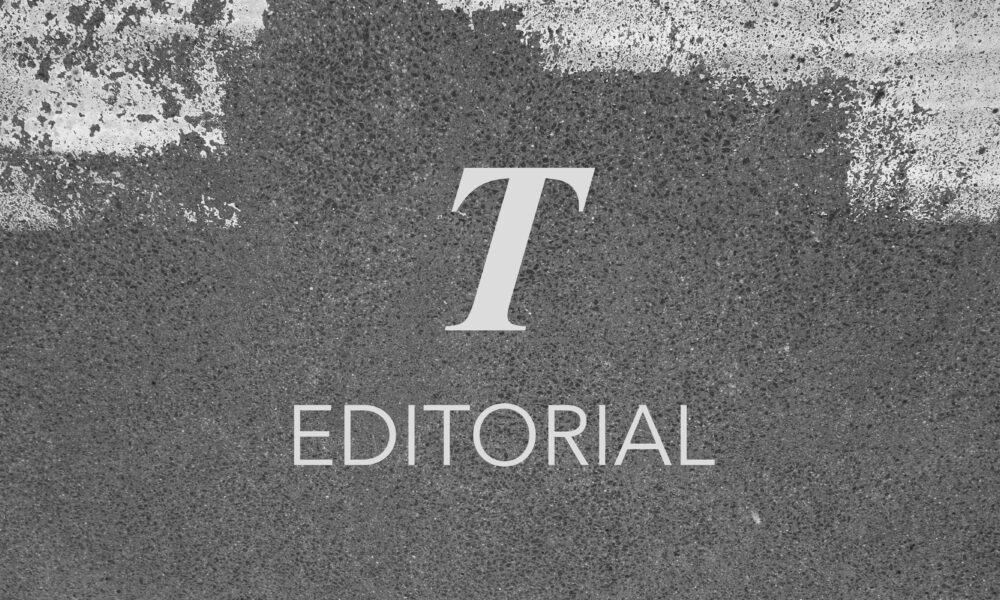On Feb. 22, 2024, the town of Westlock, Alberta, voted to prohibit rainbow crosswalks and flying anything other than government flags. This measure is yet another recent example of Canadian politicians implementing homophobic and transphobic policies, all of which normalize hatred against queer communities.
The Westlock decision came after Alberta Premier Danielle Smith announced a dangerous plan early last month to prevent young people from accessing gender-related therapies such as hormones and puberty blockers. In response to Smith’s policy, Conservative leader Pierre Poilievre claimed that young people should only be able to make choices concerning their bodies “when they’re adults” and explicitly stated his opposition to puberty blockers for people under 18. Poilievre also affirmed his undying support for trans-exclusionary rhetoric, saying that trans women have no place in women’s sports. As politicians weaponize women’s identities and openly disregard science to serve their electoral agenda, institutions—from all levels of government to universities—must speak out against this dangerous rhetoric and actively protect the human rights of the 2SLGBTQIA+ community.
Decisions taken “in the best interests of the child” not only cater directly to Conservatives’ ideas of what gender identity should look like but are also life-threatening to trans youth. According to a 2022 study published in the Canadian Medical Association Journal, transgender adolescents are five times more likely to consider suicide and almost eight times more likely to die by suicide. Restricting access to gender-affirming care will increase mental suffering for young transgender people who already face isolation due to a lack of support systems. Requiring parental approval for trans teenagers to access care, whether it is for surgery or for changing their pronouns, ignores the rejection and bigotry that many trans children face within their families and larger social circles.
These discourses and policies that put trans youth’s bodily autonomy in the hands of their parents emerge directly from an ideology that perpetuates shame, hate, and violence against trans identity and trans people. Smith and Poilievre dishonestly build their anti-trans rhetoric around “safety” while putting 2SLGBTQIA+ youth in danger. Just last month, 16-year-old two-spirit teen Nex Benedict died following a violent confrontation with classmates in their high school in Oklahoma. Across North America, two-spirit people, the broader Indigiqueer community, and other queer and trans people of colour experience homophobia and transphobia in addition to white supremacy and settler colonialism.
The Liberals’ response to the Conservatives is far from sufficient. Prime Minister Trudeau’s accusation of Poilievre attacking “some of the most vulnerable people in society” does not provide any tangible measure to protect queer and trans Canadians. The 2SLGBTQIA+ community must be included in policy discussions of their human rights, not sidelined as vulnerable.
Furthermore, the political sphere is not alone in enabling harmful discourse against transgender people and endangering their autonomy and livelihood. Though McGill has offered resources in support of 2SLGBTQIA+ students often well after community organizing by Queer McGill, the Union for Gender Empowerment, and the Trans Patient Union, powerful stakeholders in the administration have platformed transphobic speech in the name of academic freedom. In Jan. 2023, McGill University’s Centre for Human Rights and Legal Pluralism (CHRLP) invited transphobic professor and lawyer Robert Wintemute to host a talk entitled “Sex and Gender Identity.” The McGill community responded immediately as protesters from various student groups stopped the event before it even began, successfully forcing its cancellation.
The McGill administration must live up to the values of openness that they publicly promote. Navigating academic spaces for the first time can be a considerable strain on trans students especially, and they should not have to struggle with bureaucracy when it comes to changing their student ID and email address to align with their chosen name. Queer McGill has led a campaign against misgendering and deadnaming, and the university must listen.
McGill students must continue to stand against transphobia and refuse to let their university put trans people’s rights up for debate to fulfill their commitment to “the exchange of ideas.” Trans people’s right to exist is not a conversation, and with substantive care, protection, and support, will not become one.









